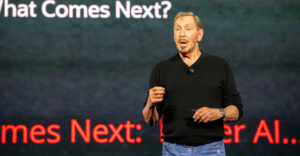
Microsoft announced an important update to Dynamics CRM this week in which it spiffed up its marketing capabilities. You can find the news details pretty easily out on the Web, but the details are less important to this piece. The fact that Microsoft delivered an update is the really interesting part, and I was glad to see it.
When it announced the general release of its new CRM product, Microsoft went out of its way to point out that it would make frequent updates, and this first major update is on track to redeem the promise. That was certainly important to Microsoft because the company has had a reputation for delivery problems — most notably in CRM, where it skipped a whole version number release because it was so tardy. So, Microsoft delivered on this promise, and maybe we make too much of what for any other company would be a rather pedestrian event.
Clothes in the Shower?
Another Microsoft event caught my eye this week, which is less germane to the company’s CRM technology but very relevant to the practice of CRM. Did you see the new ad with Jerry Seinfeld and Bill Gates? It was part of a reported US$300 million branding campaign that supposedly will help to restore Microsoft’s luster as a hip technology company.
Does it work? I don’t know. What’s really going on here?
With all due respect, Seinfeld went into syndication about 10 years ago, and Bill Gates went into syndication this summer. How are they supposed to restore the luster of the old brand? They’re not — they can’t. Despite Dynamics CRM’s relative success this week, Microsoft is dogged by the failure of its Vista operating system.
In a related move, the company is now deploying what it calls “gurus” to Best Buy stores to help sell the virtues of Microsoft products. That’s a good idea, and it mimics Apple’s geniuses — people who know everything about Apple products who work at Apple stores. While the gurus will help with initial purchases, the program is not fully articulated to the point where Microsoft will provide training and post-sales support as Apple geniuses do.
Transition Crisis
Give Microsoft some credit for making these attempts, but they may prove to be little more than windows dressing (I know, bad pun, but it proves to be irresistible). Microsoft is suffering from what I can only describe as a “transition crisis,” and it’s been ongoing for some time. The company is not alone, and many of the high fliers of the last couple of decades can be similarly categorized.
These companies have succumbed to “over-financialization,” a condition that occurs when the founder and leading product visionary leaves a company — or at least retires from day-to-day management. To fill the void, the board selects a financial whiz kid (WK) to run things. The WK and his/her team’s purpose in life is pleasing Wall Street, and there is nothing they won’t do to add a penny to the quarterly earnings per share.
My economist friends will tell me that’s what the WK is supposed to do, to maximize shareholder value, and I might even grant that as a proposition for a moment. However, the primary constituency is not the shareholder but the customer. After all, it is the customer who makes the purchases, and unhappy customers lead to unhappy shareholders.
You can find traces of over-financialization in other companies, like Oracle and SAP — two companies that have had great rides and, to their credit, are trying to figure it all out.
Oracle especially seems to have an internal skunk-works operation going in what used to be Siebel. Oracle-Siebel is innovating and trying to bring to market some new ideas based on Web 2.0 thinking. Whether it will succeed is anybody’s guess, because it is surrounded by the sclerotic remains of old Oracle. For sure, though, it will be fun to watch.
Ways to Go
Microsoft is not that far along, as demonstrated by the Seinfeld-Gates ad. Seinfeld is best known for a long-running comedy show about, well, nothing, and the commercial continues in that vein.
In some of my lectures and writings, I like to point out that today’s customer is different from the customer who bought the first iteration of the product. As so often happens, today’s customer has grown up with a technology or a solution, and using it is second nature. That leads to interesting disconnects, which is what the Seinfeld ad points out. The ad, in some ways, is trying to connect technology with everyday life, but the customer knows this intuitively. This generation of customer is way ahead of the curve, preferring a quick search to fill a need over an ad that tries to entertain.
I’ve seen a few print ads for Salesforce and Oracle — the former has never, to my knowledge, run commercials, while the latter confines itself to golf tournaments and the like. Moreover, Google and many others have built very nice companies without advertising at all.
What this tells me is that Microsoft is not cool these days. It could be again, but it will take a serious rethink and some product improvements to get the mojo back. I wish the Microsoft marketers had called me instead of Seinfeld; I would have saved the company $299 million.
Denis Pombriant is the managing principal of the Beagle Research Group, a CRM market research firm and consultancy. Pombriant’s research concentrates on evolving product ideas and emerging companies in the sales, marketing and call center disciplines. His research is freely distributed through a blog and Web site. He is working on a book and can be reached at [email protected].






















































Social CRM
See all Social CRM